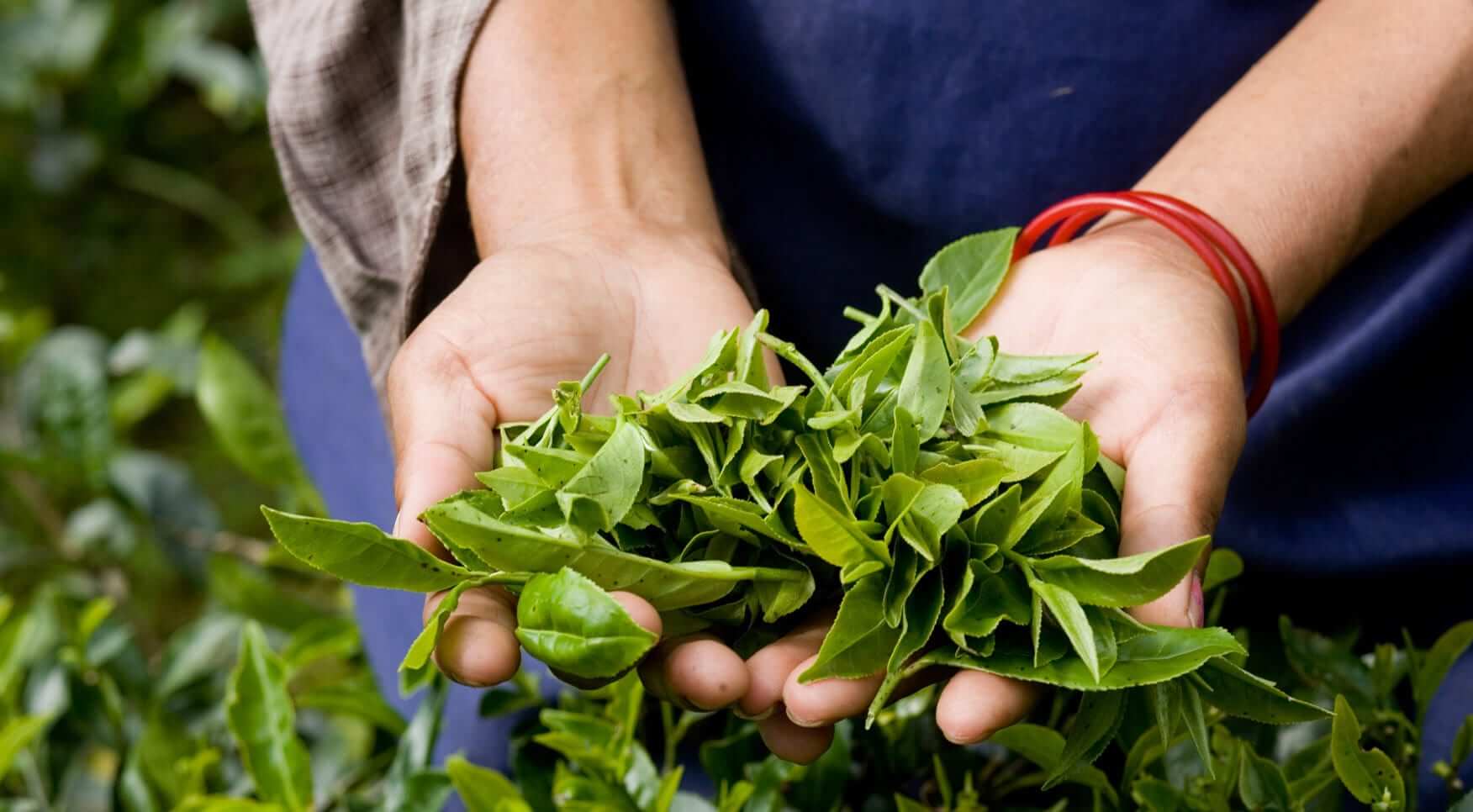Krishna Mishra, founder of eKutir, shares his insights into the agriculture sector in India with the Asian Entrepreneur. Krishna is a social entrepreneur running a for profit social business, eKutir, to work for the progress of small and marginal farmers and improve their socio-economic state.
More than 54 per cent of Indian workforce as per 2011 census is engaged in agriculture. And, it for the last 20 years has been trying to get 4% rate of growth in agriculture and has failed. The rate of agriculture growth since the reforms began has hovered around 3.2-3.3 per cent. The agriculture industry in India is totally fragmented and the supply chain is marred by inefficiency. The alienated environment creates a high risk for farmers and as a result there is no trust in the market, no convergence of service providers at the farmer point, and no collaboration amongst the service providers at the first-mile.
The risks agriculture entrepreneurs are confronted with today; involve the ethical attitude of big companies who are supplying products to the BoP and logistics issues at the last-mile.
Approximately 78 percent of India’s farmers are small and marginal (farmers who own less than five acres of land). A farming cycle is such that a small and marginal farmer, with an income of about $1 a day, is required to undertake various activities apart from laboring on the field including best growth practices to manage the land, access to credit and market information, organize transport, and identify buyers for the produce.
Although there are enterprises, including government agencies, private companies and charitable organizations, which provide farmers with such products and services, a farmer is often not equipped with information to choose the product best suited for him/her or the manner of its application. Even if farmers are equipped with this information, different vendors provide products and services. Consequently, to acquire the potential help, farmer would have to go to each in turn, incurring expenses at each step, to procure what is needed. Because they are economically fragile and situated in remote areas, such farmers are in fact dependent on the ability of local people or institutions to reach out to them. Since many potential services are not easily accessible, farmers are often left with no choice but to use what they can reach locally, irrespective of quality or cost.
Limited by reach and capacity, a farmer’s inability to procure quality products and services multiplies the level of risk. For example, even if a farmer receives access to credit, he/she is adversely affected if they receive contaminated or diluted seeds or is unable to get timely access to the market for selling. Factors that reduce the income also reduce credit-worthiness for the next crop cycle. This cycle creates a systemic risk for the farmer that becomes a vicious loop for poverty.
The complex supply chain for various agricultural inputs (such as seeds and fertilizers) involving a series of actors, amplifies the risk faced by farmers. The agricultural market is controlled and managed by middlemen and cartels, and it is common for distributors and retailers to taint the products received from manufacturers before selling it to the farmers. Multiple brands and products, many of which are not genuine, flood the markets making it hard for farmers to make the right choice and identify quality products. For instance, at one point close to 2,000 brands of hybrid seeds of cotton were being sold in the state of Andhra Pradesh.
Moreover, most small and marginal farmers are largely ignorant of guarantees provided by the manufacturers. For instance, although the law requires seed companies to provide a guarantee of 80 percent germination, the retailers make few farmers aware of this right. The role of multiple actors in the supply chain also makes it harder to allocate responsibility. As a result of this complex supply chain, on one hand, seed and fertilizer companies find it challenging to reach markets directly and on the other, farmers receive spurious and adulterated products. The existing supply chain also perpetrates and amplifies a huge information gap between the needs of the farmer and the services that are provided.
All of these factors have resulted in farming becoming an unattractive, unviable livelihood opportunity. With these critical gaps to be addressed, eKutir through an enterprise paradigm started creating favorable opportunities for the farmers, to benefit their economic livelihoods.
Would you mind walking us through the process of how eKutir first began?
I recognized the complexity in farming: the criticality of timeliness, weather conditions, and choice of inputs and interconnectedness of each factor with another. Organizing farmers’ bottom-up through a local distribution network of micro-entrepreneurs, I have introduced a sophisticated ICT platform that enables group of farmers to analyze diverse interconnected factors, make critical decisions, and manage agriculture delivery processes to effectively compete in the market.
In order to build a demand-driven system, I identify and support local micro-entrepreneurs who become the ‘go-to’ person within the village for farmers. They build a participatory framework by organizing and partnering with groups of farmers to understand their contexts and needs. Based on farmers’ needs and using cutting-edge software applications (web/mobile), the micro-entrepreneurs create a comprehensive portfolio of farmers, which maps and analyzes the risks faced by each farmer. Leveraging such technology, they assist farmers in crop, resource, and financial planning. The micro-entrepreneurs then enable the farmers to take tangible action based on recommendations and feed their demand for different products and services into a centralized technology platform. Based on aggregated demand from the farmers and again from the micro-entrepreneurs, eKutir builds appropriate partnerships with agro-stakeholders, including university experts, soil scientists, seed, pesticide and fertilizer suppliers and buyers to match the farmer needs.
To sum up; in addition to making farming an attractive profession, eKutir is building an independent supply chain platform that is driven by the demand of farmers, assures quality, and increases access to markets for multiple institutions. It also allows farmers to benefit from their collective negotiating power while still making individual choices for products and services.
What were the challenges you faced when eKutir started?
Agriculture and poverty are two complex systems that are so intertwined that a failure of one will beget failure in another. The difficulty while starting out was to identify the most common problem faced by majority of farmers or what is called the low-hanging fruit and address it well. In the agriculture cycle, there are multitudes of gaps that need to be bridged; yet the most feasible for eKutir was to work on soil testing, soil health, and nutrient recommendation, considering a large percentage (~80%) of the farmers shy away from soil testing in Odisha.
These three elements impact crop yield, farmer income, and input costs. Optimal utilization of nutrients and timely results based on soil testing positively impact the aforementioned elements, driving up the agriculture income and yield.
Once we identified the low hanging fruit, we wanted a cost-effective way to reach out to the farmers. Leveraging technology seemed like a viable option, but the mode of technology had to be defined. Ownership of mobile phones among the farmers had increased but the efficacy of SMS based services and voice-based services were uncertain. We thought of addressing the digital literacy among the farmers, but realized that this is a time-consuming process and the cost-benefit to the farmer was realized after a long period of time. Time was one factor that we could not ignore, as it is indispensable for a farmer. We devised an agent-led model, where a digitally trained resource from the community level will be responsible to interact with the farmers and will be incentivized on the basis of transactions and services provided. When we prototyped this, it had a positive impact both at the farmer and the agent level. Instead of linking the agent to eKutir, we decided to create an independent distribution channel of micro-entrepreneurs (or agents) who would be owned by eKutir or franchised to other field partners that will use the software applications for extending agriculture services for the benefit of the farmer.
This helped eKutir address the twin gap of accessibility through the distribution network and customer relationship with the farmers, a largely overlooked area in dealing with resource poor client or communities.
Can you tell us more about the products and service eKutir offers?
eKutir piloted mrittika, a software application that recommends nutrient application on the basis of soil-testing analysis. The value proposition of this tool was to equip the farmers with the necessary knowledge about their soil, crops to be grown, and the requisite application of nutrients and fertilizers, basis of soil characteristics.
When the first phase of pilot was conducted with 300 farmers, it created excitement among the farmers on seeing the soil testing conducted in front of them at their farm. When the test results were presented, the farmers were astonished with the appropriateness of soil analysis, as majority of these farmers had faced challenges in procuring the soil testing report timely, from the soil health centers established by the Government. The approach of using mobile soil test kits at the farm increased the inquisitiveness of the farmer and helped in disseminating appropriate knowledge on testing and soil health.
Post soil testing, the results were entered in to mrittika, which on the basis of the farmer information captured provided the quantity, quality, and availability of nutrient/fertilizer on the farmland. The software tool had a detailed step-wise algorithm at the back-end with a simplistic user interface to help the micro-entrepreneur enter details and get corresponding recommendations. The software application allowed localization and customization, tailored to a particular region. When compared with the current dosage given by the farmers, it was understood that there was over-application of fertilizers, which were spurious, and were bought at unfair prices.
To test the efficacy of mrittika, a control and treatment group were created. The control group applied the same dosage wherein the treatment group applied the dosage recommended by mrittika with the nutrient procured through eKutir. The results were overwhelming for the treatment group with the best farmer showing 133% reduction in costs, 200% increased crop yield, and 250% increased income on the crop. This established farmer’s trust in eKutir and helped us organically increase our outreach without any additional marketing.
The initial reaction of the farmers helped eKutir build a sense of trust and credibility, which increased farmer’s confidence in the system, and made them understand that this is a non-exploitative way to help them become more productive.
As, we believe in designing appropriate software applications to benefit the needs of the farmers, eKutir came up with additional tools like ankur, FPMT, TIME Tool, and so on to help address the small gaps in the agriculture value chain, with a vision to create a suite of ICT-enabled tools that will help drive our mission to benefit millions of smallholder farmers.
How would these micro-entrepreneurs compete with the big players in the industry?
We as social entrepreneurs must thrive to build a shared and collaborative eco-system rather than a competitive one, in order to benefit the farmers. There are social enterprises (for-profit and not-for-profit) that are addressing to the challenges of farmers in their unique way and have made considerable positive impact. Yet, there is a long way to go and collaboration will help in binding best methodologies and approaches together for the farmer’s benefit.
The entrepreneurs working at the BoP have the knowledge of the need, the gaps, and have designed the solution to address the need. The big players have capital and resources but need an ethical partner to reach to the BoP. Combining these two will mutually benefit both stakeholders and create an all-inclusive, market-driven approach to solving the bigger challenges and ramping up outreach and impact.
It is this competition that has created such a dysfunction in the agriculture value chain today. If we are to make advances in agriculture and farmer growth, a collaborative framework to converge at the BoP will be indispensable.
What are your personal goals and what is the future for eKutir Agriculture?
My personal goal is to mentor hundreds of social entrepreneurs to address to the problems of the BoP farmers and farming communities. The future for eKutir Agriculture is to reach out to all the resource poor farmers in India and globally with its products through a partnership model and create maximum impact for the society at large.
I believe that to find catalytic, scalable solutions to global farming challenges, agriculture should be seen from an enterprise paradigm, not a charity. eKutir’s transformative solution offers a variety of new approaches. Many other attempts to spread agricultural best-practice knowledge have run into challenges of literacy, which our model can help mitigate.
Real-time information delivery systems are important in agriculture, and technology-enabled solutions like ours can create a live platform to farmers and all other players in the eco-system. A system where information is gathered at the grassroots farmer-level will provide important data to inform policymakers and decision-makers along the value chain. Farmers need to be empowered and enabled by knowledge.
This proven system has the potential to dramatically increase the incomes, well being, and quality of life for millions of farmers around the world.
Honesty, dedication, empathy, and a spirit of leadership will be the key values to successful entrepreneurship. eKutir strongly believes that a person should have all these traits and values in him/her for success in the BoP market. Agriculture; as it has the power of changing the profile of the poor, which will be visible to the beneficiaries. Farmers as changemakers; as they constitute the majority of the population, are the custodian of the earth, stewards of natural resources, and feed 7 billion people around the globe.
LinkedIn: https://www.linkedin.com/company/ekutir
Facebook: https://www.facebook.com/eKutirSB
Twitter: https://twitter.com/ekutirsb
YouTube: How eKutir works
Vimeo: http://vimeo.com/71197753


































